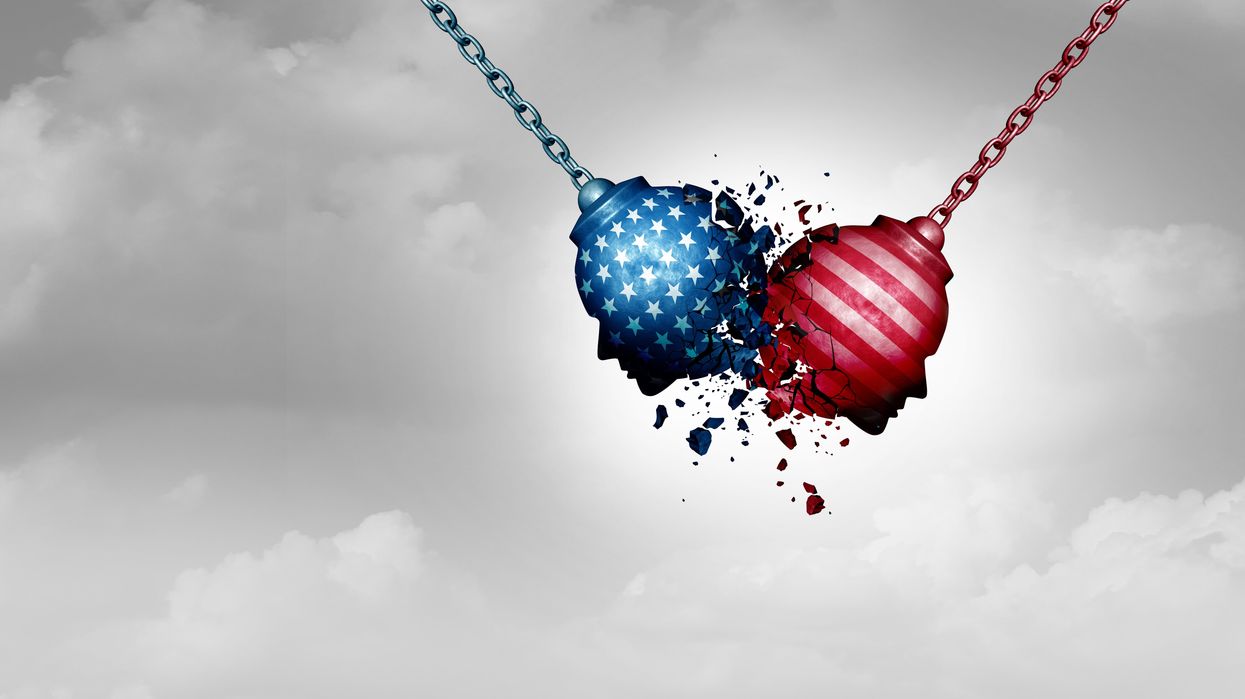Johnson is a United Methodist pastor, the author of "Holding Up Your Corner: Talking About Race in Your Community" and program director for the Bridge Alliance, which houses The Fulcrum.
The 2024 presidential race is heating up and, with it, an alarming trend has emerged in how we as a nation are talking to each other. It's not just a matter of political strategy; it's a crisis that demands our immediate attention.
Divisive rhetoric — such as labeling immigrants as "invaders" or "criminals," using inflammatory language like "enemy of the people" to describe the media, dehumanizing speech that refers to people of certain ethnicities as "animals," and outright racism — is becoming all too familiar. This way of politicking isn't just a betrayal of democratic principles and American ideals. The toxic talk we're experiencing is a clear and present danger to our social contract.
The consequences of this kind of rhetoric are severe. Look at the recent rise in hate crimes and discrimination against ethnic groups. It creates a toxic environment in which fear and anger run the show, clouding our judgment and leading us to destruction. It tears at the seams that bind us together, threatening to rip us apart. Most damaging, it poisons our political discourse, preventing us from discussing critical issues honestly, finding common ground and working towards solutions that benefit all Americans. But the danger goes even further.
When leaders use rhetoric that demonizes, scapegoats and dehumanizes, they're not just dividing the people; they're actively undermining the foundations of our country. They're saying some lives and rights matter less than others. They're violating the sacred principle of equality that is the bedrock of our democracy.
Disrespectful discourse isn't just anti-democratic; it's the opposite of healthy citizenship and basic human decency. It's a poison that infects our society, corrupting the ideals of liberty, equality and justice we hold so dear. This “toxic rhetoric” refers to language that incites hatred, fear and discrimination, and it's a system in which some are elevated at the expense of others, leading to injustice and inequality. Marginalized groups are inevitably the target of hatred, violence and oppression. We bear the brunt of this toxic rhetoric, suffering the consequences of a society that has lost its way.
The goal should be a nation where every voice is heard, every life is valued and everyone is treated with the dignity and respect they deserve. The United States is where diversity ought to be celebrated, not denigrated, and where inclusion is the common practice, not the exception. Democracy demands greater and expects much from its leaders and citizens. Democratic republics strive to curate political discourse grounded in truth, guided by empathy and dedicated to the well-being of all citizens. As a key player in shaping public opinion, the media has a crucial role in promoting respectful and inclusive political discourse. It's not just a role, it's a responsibility that cannot be understated.
Respectful discourse isn't about creating a fake atmosphere of consensus. Healthy debate seeks to find common ground, even in disagreement. It's about creating a political discourse that tackles the real problems we face, even if that means we disagree. More importantly, it's about recognizing that we can have differing views without demonizing those who see the world differently.
Respectful rhetoric expresses civility, empathy, and respect for humanity. It is an earnest exercise that requires open minds and hearts, and most importantly, empathy. For instance, respectful and inclusive political discourse involves acknowledging the experiences and perspectives of all citizens, regardless of their background. It's about prioritizing real issues over empty rhetoric and holding our leaders accountable for what they say and do. It's about demanding substance over style, action over words. The fate of American democracy literally hangs on our respective tongues and choices we make.




















